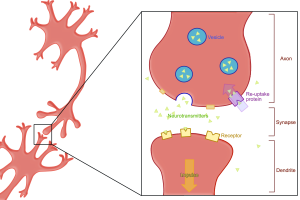Depression. Anxiety. Bipolar disorder. ADHD. Once considered signs of “being crazy,” these illnesses and more are slowly being recognized for what they are: health issues that need to be addressed with dignity, respect, and treatment solutions that make a difference in patients’ lives.
Just as we would expect doctors to treat a broken bone or a heart condition, so should we expect them to treat mental health matters. Because mental health concerns affect the brain, it is key to understand the complex functions of this organ in order to understand how to treat these issues today.
The Brain At Work: Neurotransmitters And Neurons
While we are constantly learning more about the brain and how it develops and operates, through ongoing research the medical industry has gained solid advances in knowledge that allows us to identify common sources of mental health issues.
In many cases, we find that mental health issues are caused by an imbalance of neurotransmitters. These brain chemicals are responsible for carrying and sending chemical messages between our neurons – that is, the nerve cells that carry signals back and forth between the brain and your body constantly.
Neurotransmitters successfully interacting with our neurons make everything we do possible. This is because every single conscious and unconscious action we take each day relies on our body’s network of nerve cells effectively communicating and sending electrical and chemical signals and impulses between the brain, body, and nervous system. The network that neurons operate in is incredibly complex, with different signals and chemical neurotransmitters interacting with neurons in various ways to help the body function properly.
Unfortunately, this complexity means that it only takes a small error somewhere in the system to create unbalance in our brain’s chemical makeup.
Going Off Balance: Neurotransmitters And Mental Health
Should the chemical process of communication between the brain and body be interrupted in any way, patients are likely to experience one or more of the symptoms that we typically associate with mental illness. Hundreds, even thousands, of different chemicals are involved in this process. And while health experts are still studying the intricate relationships between these chemicals and mental health, we have successfully identified many key chemicals that are likely to create problems when produced in the wrong amount.
Reduced levels of the well-known chemical called serotonin, for example, are likely to contribute to cases of depression. It’s thought that off-balance levels of dopamine may contribute to one’s risk of developing schizophrenia or ADHD.
And these are just two examples of the numerous chemicals that allow our brains and bodies to function. The reality is that neurotransmitter imbalances or neurotransmitter deficiency contributes to many, many other possible symptoms and outcomes. They can affect cravings for certain foods, lead to impulsive behavior, create moodiness, and much, much more.
Neurotransmitters And The Modern Patient
Fortunately, in this day and age mental health symptoms are more treatable and manageable than ever before. Dr. Samoon Ahmad of The Integrative Center for Wellness, for example, is proud to provide psychiatric services to individuals seeking a healthy balance between mind and body. In addition to providing consultations designed specifically to ensure your needs are treated as uniquely as they need to be, Dr. Ahmad offers genetic testing designed to determine which medications are likely to be the best fit for you. As a result, patients at The Integrative Center for Wellness are likely to receive exactly the treatment they need, sooner – allowing them to begin a journey to recovery that much more quickly.
Interested in working with Dr. Ahmad to address something you’ve been struggling with? Go ahead and make an appointment with us today – we would love the chance to meet with you personally to find out exactly how we can assist you in living a healthier, balanced life.


0 Comments on "Mental Health, Neurotransmitters And Your Brain"